IN THEATRES NATION WIDE STARTING FEBRUARY 9
Screening details
January 29 at 1 p.m. at the TIFF Bell Lightbox (Canada’s Top Ten)
In-person Q&A with director Nisha PahujaOpens February 9 at Hot Docs Ted Rogers Cinema in Toronto
Kicking off with special post-screening Q&A on February 9, moderated by Oscar-nominated
filmmaker Deepa Mehta, with director Nisha Pahuja and editor Mike Munn
(Co-presented with the DOC Institute)Opens February 10 at The Westdale in Hamilton
In-person Q&A with director Nisha Pahuja February 11Opens February 10 at Cinéma du Parc in Montreal (in English and French)
Opens February 10 at the VIFF Centre in Vancouver
Virtual Q&A with director Nisha Pahuja TBC
February 11 & 14 at the Metro Theatre in Edmonton

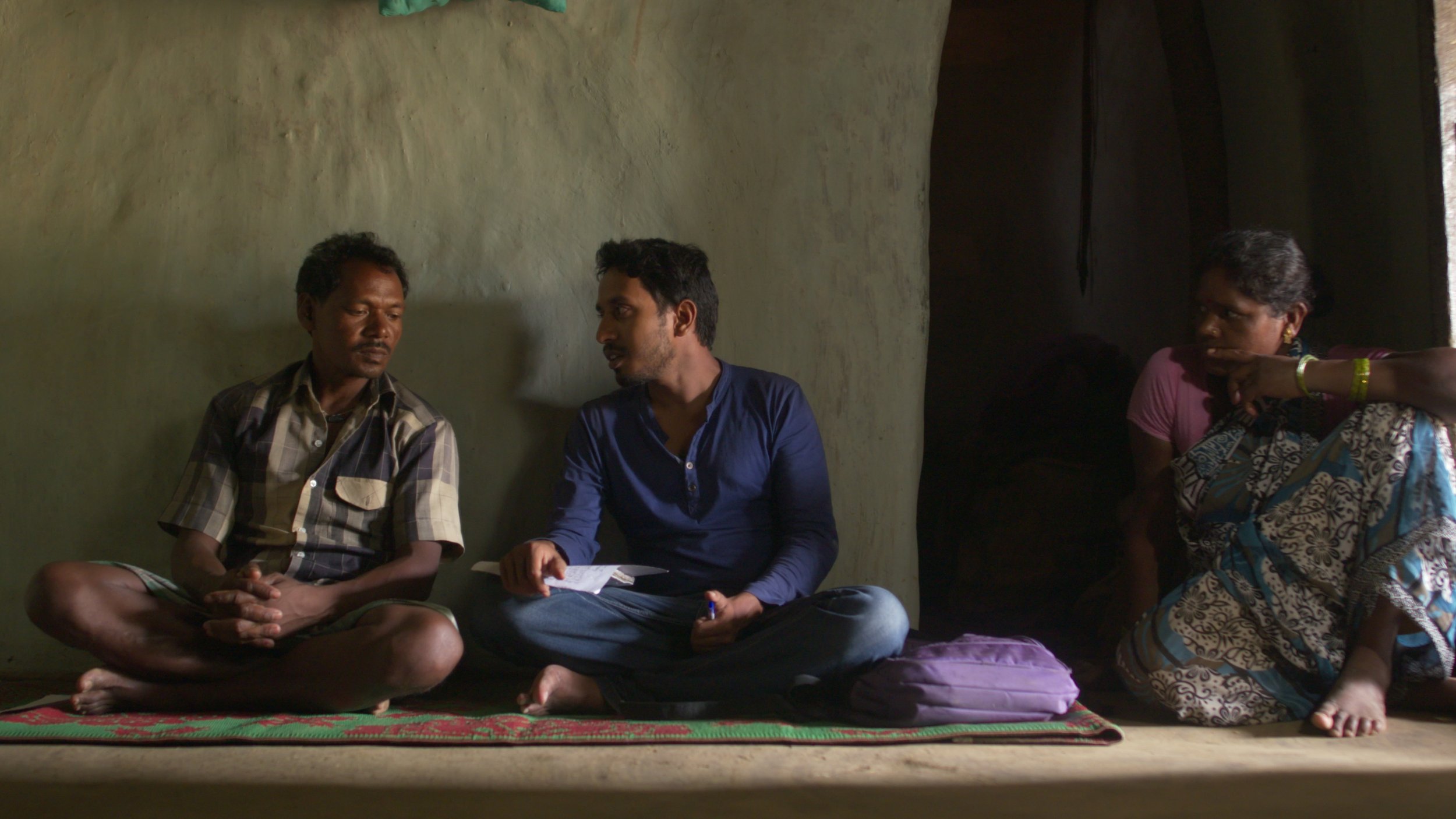
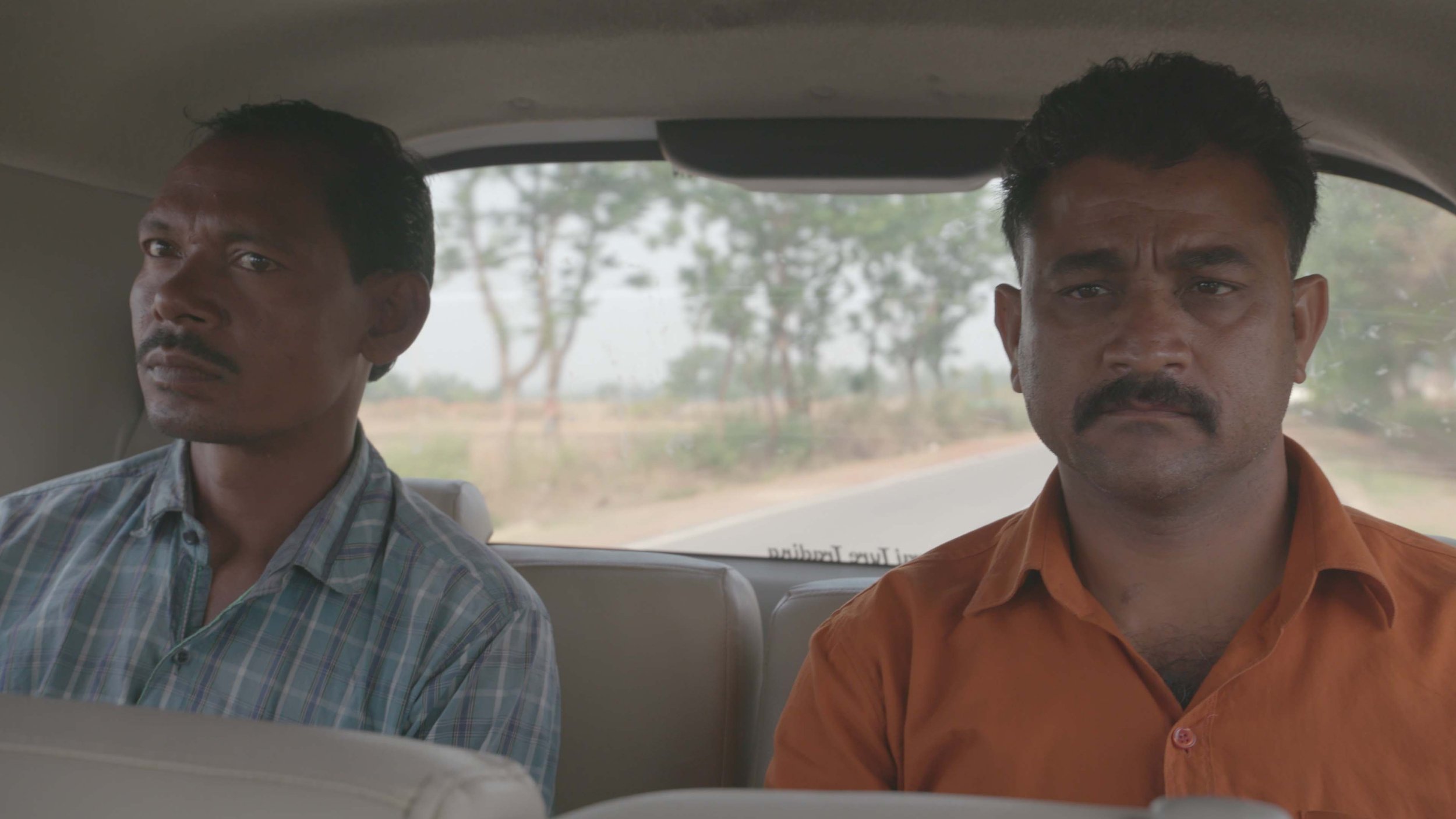
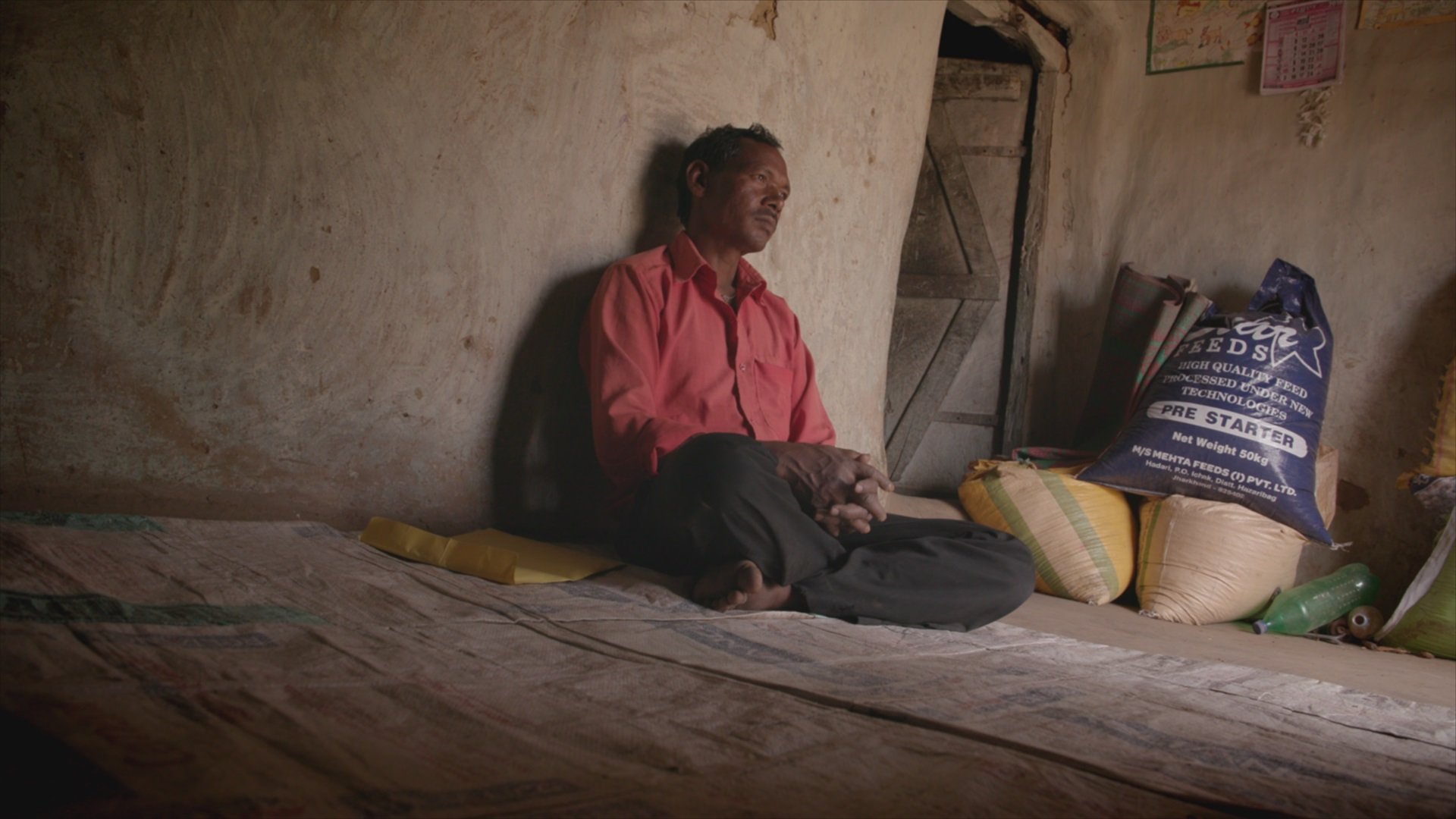

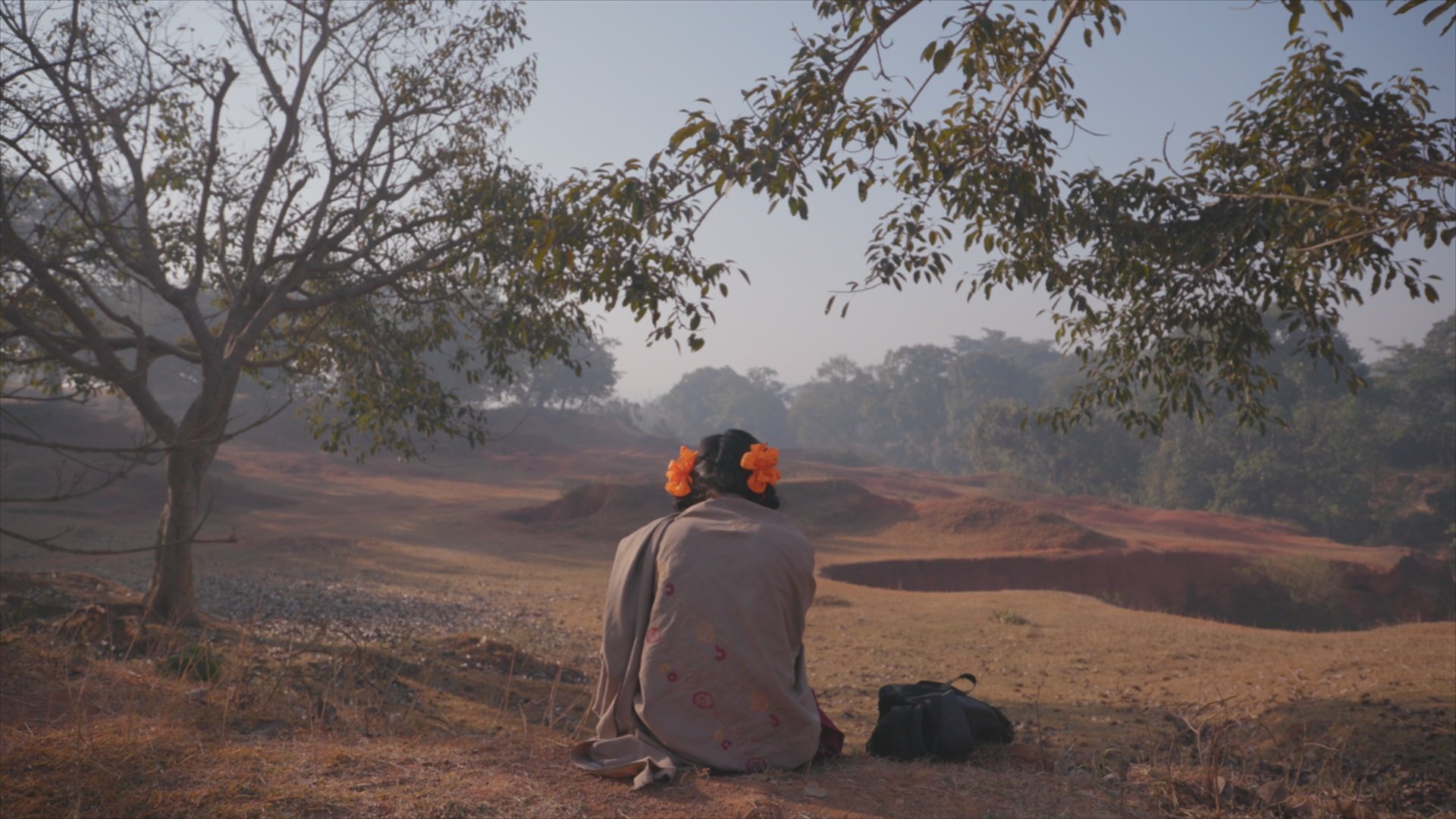
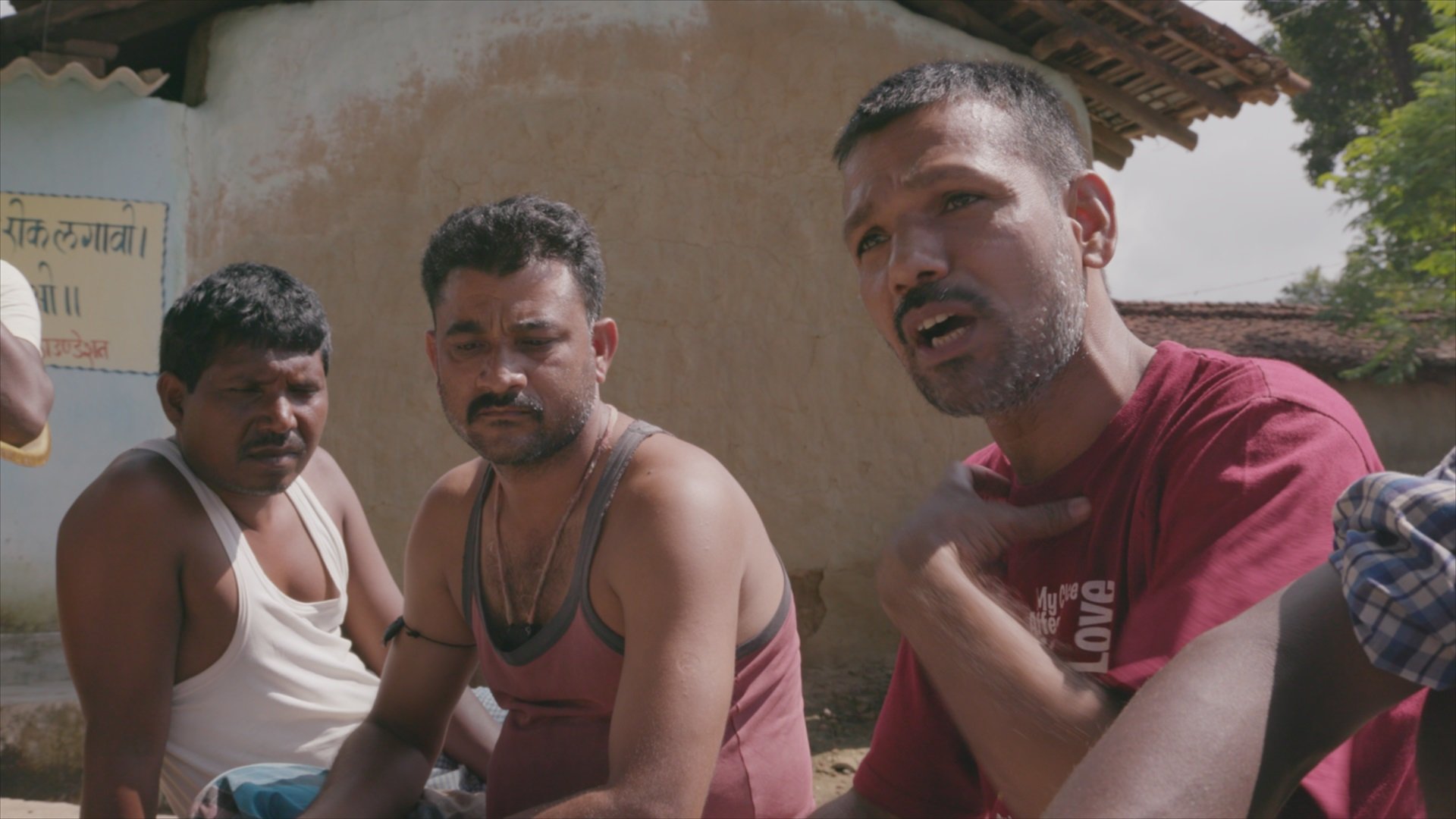
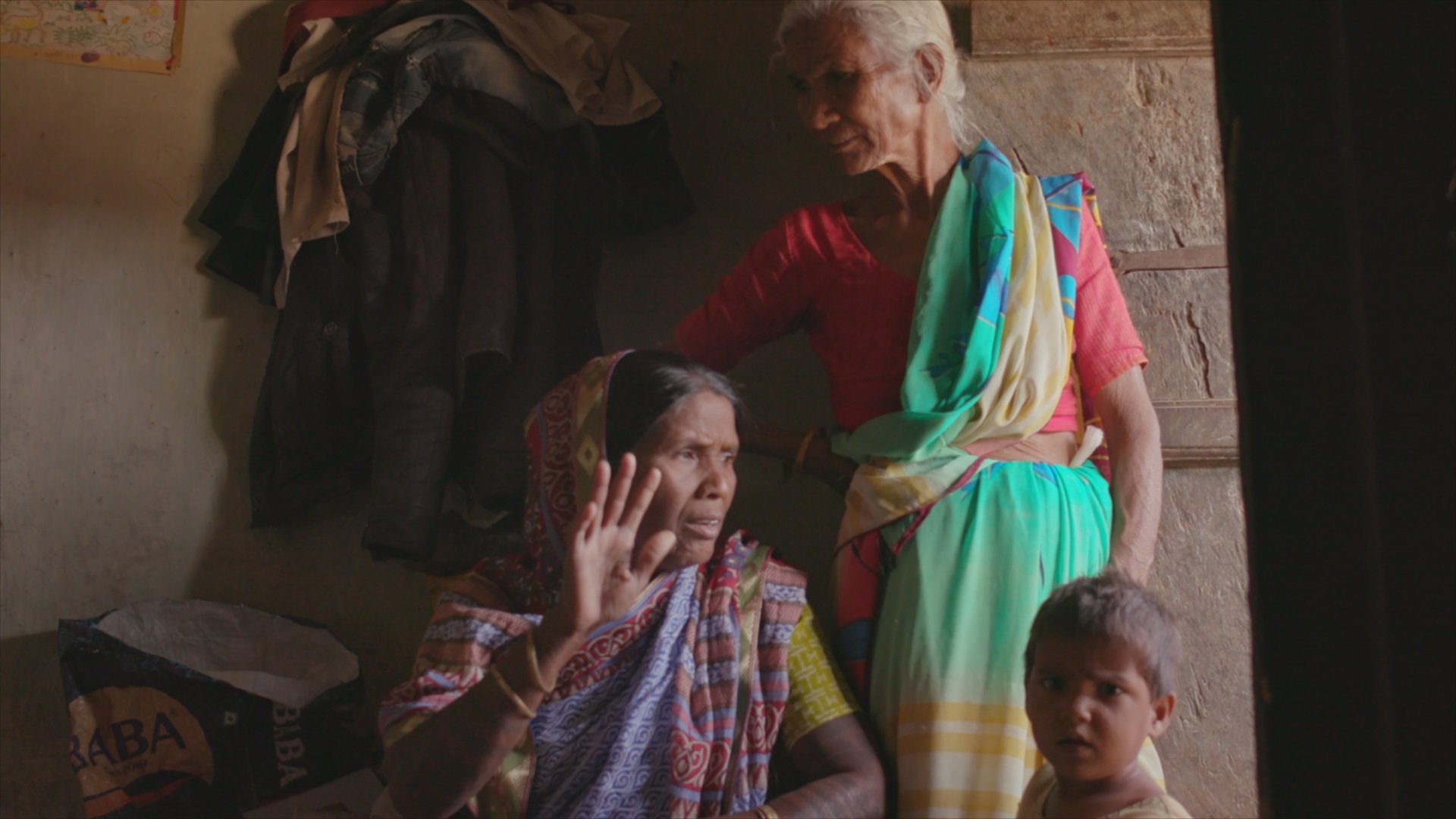
About the film
TO KILL A TIGER
Nisha Pahuja’s Notice Pictures/NFB co-production To Kill a Tiger, in which a farmer in Jharkhand, India, takes on the fight of his life when he demands justice for his 13-year-old daughter, the victim of a brutal gang rape.
-
In a small village in Jharkhand, India, Ranjit wakes up to find that his 13-year-old daughter has not returned home from a family wedding. Calls are made, a search ensues, and a few hours later, she’s found stumbling home. After having been dragged into the woods, she was raped by three men, all of whom are known to the family. Ranjit and his wife go to the police, and the men are arrested.
But the family’s relief is short-lived when the villagers and their leaders launch a sustained campaign to force Ranjit to drop the charges. They demand the girl marry one of her rapists—a tried and true community solution. This, they feel, is the only way to restore her honour and that of the community. Ranjit defies their edict and embarks on a perilous journey, navigating both the labyrinth of India’s courts and the rising dangers in his village.
A cinematic, story-driven documentary, To Kill a Tiger follows Ranjit’s uphill battle to find justice for his child. In India, where a rape is reported every 20 minutes and conviction rates are less than 30 percent, Ranjit’s decision to support his daughter is virtually unheard of, and his journey unprecedented.
His stand piques the interest of the Srijan Foundation, an NGO working to sensitize men and boys on women’s rights. They look to Ranjit as a poster boy for their work and an inspiration to other men.
Their support, along with the presence of the camera crew, fuels the ire of the villagers, and as the trial gets underway, threats of violence begin to loom. Ostracized by the community, dealing with mounting debt and fearing for himself and his family, Ranjit’s composure begins to crack, and the whole process is in danger of being derailed.
With tremendous access to all facets of the story, To Kill a Tiger recounts the emotional journey of an ordinary man facing extraordinary circumstances. A father whose love for his daughter forces a social reckoning that will reverberate for years to come.
Articles



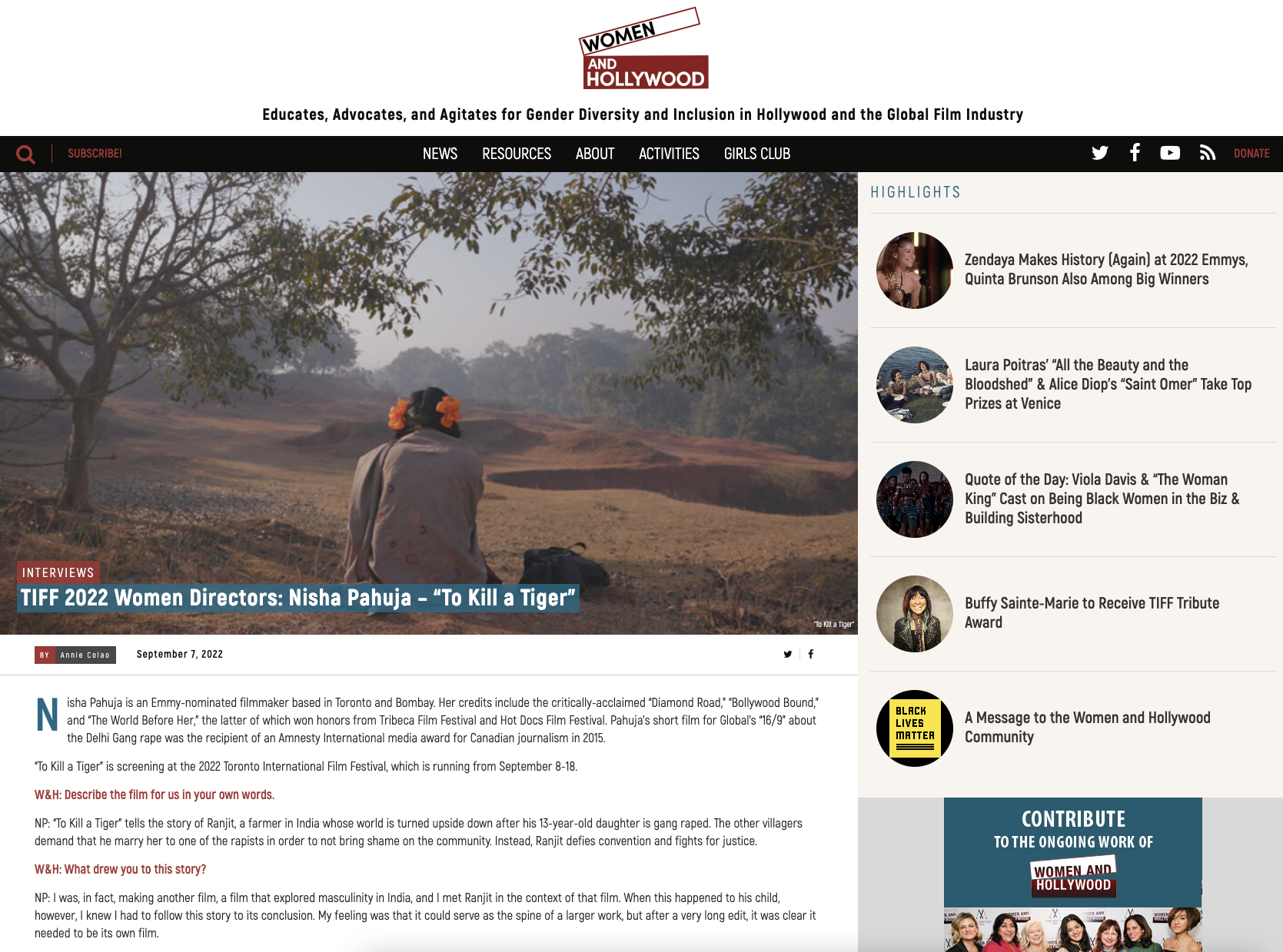
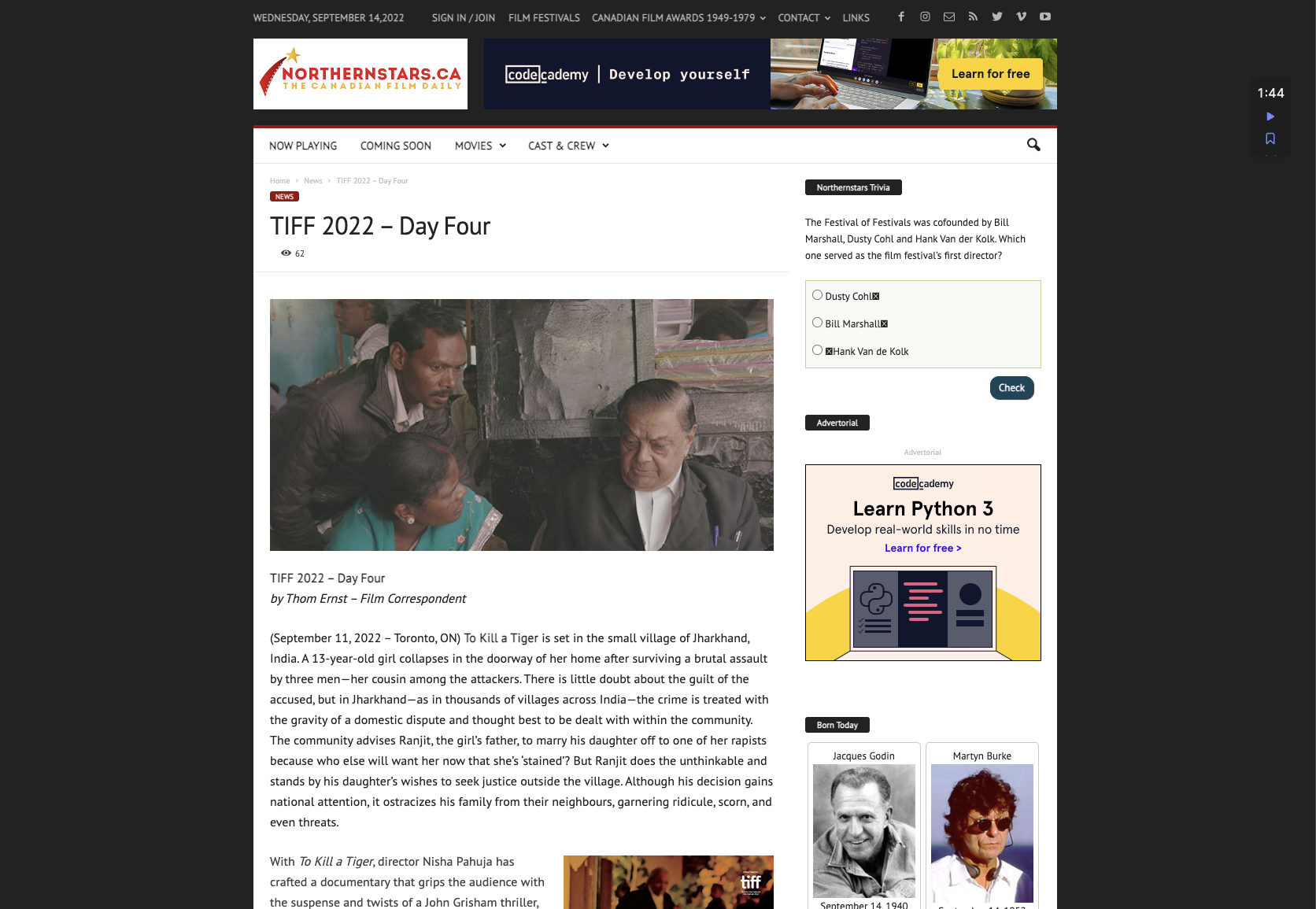

TO KILL A TIGER
Music By JONATHAN GOLDSMITH Editors MIKE MUNN CCE, DAVE KAZALA CCE Director of Photography MRINAL DESAI
Executive Producers ANDY COHEN, ATUL GAWANDE, ANDREW DRAGOUMIS
Executive Producers ANITA LEE, NISHA PAHUJA, CORNELIA PRINCIPE
Producers NISHA PAHUJA, DAVID OPPENHEIM Produced by CORNELIA PRINCIPE
Written & Directed by NISHA PAHUJA
PRODUCED WITH THE PARTICIPATION OF TELEFILM CANADA AND THE
ROGERS GROUP OF FUNDS THROUGH THE THEATRICAL DOCUMENTARY PROGRAM
AND IN ASSOCIATION WITH TVO AND KNOWLEDGE NETWORK
© 2022 NOTICE PICTURES INC. AND NATIONAL FILM BOARD OF CANADA. ALL RIGHTS RESERVED








